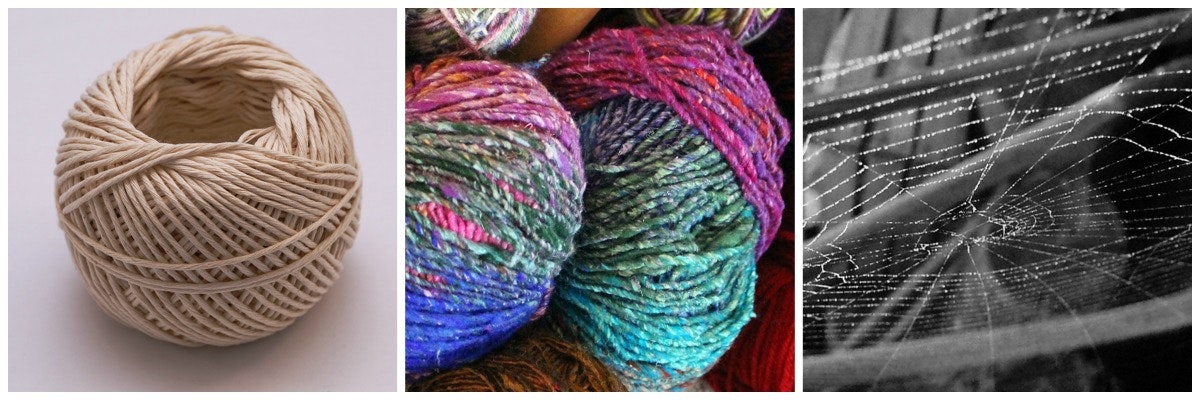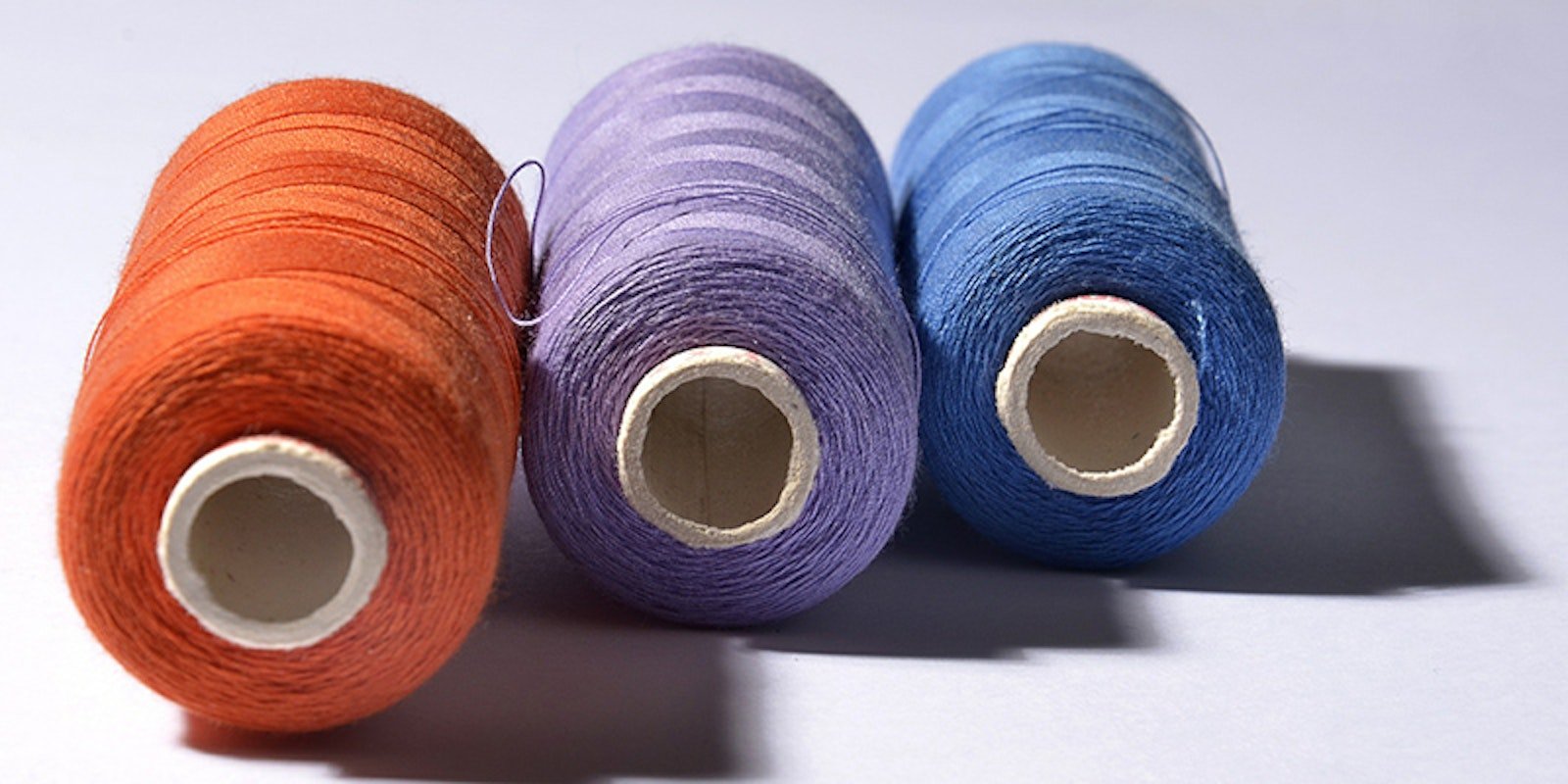I’ve been weaving for more than 25 years, and over that time period, I’ve seen many methods on how to cut thread and developed a best practices method I recommend. Cutting thread is part of every weaving project, and in many cases, it happens multiple times. Here are some of my thread-cutting tips and tricks to add to your list of weaving tips and best practices.

Pick the thickness of thread that best suits your project and its purpose. Photos courtesy of Pixabay
First, you need the correct nomenclature for what you are intending to cut.
Here is a little list of terms to familiarize yourself with:
- String: Twisted or braided fibers used in the kitchen or for other purposes besides weaving and other fiber arts. String is often composed of cotton, hemp, or nylon.
- Yarn: Twisted fibers of cotton, silk, linen, rayon, polyester, etc. used in weaving, knitting, crochet, and other forms of fiber art. The range in yarn sizes varies from thin to thick. Yarn that you no longer care for can become string if you leave it in your stash long enough.
- Thread: Similar to but much thinner than yarn, as in 8/2 cotton and 20/2 silk.
- Blankety-blank thread: Similar to thread but much thinner as in 60/2 silk, 120/2 silk, and similar sizes in cotton and linen. There is no need to learn to cut this type of thread as it breaks on its own when you least expect it.
Next you need the correct tools.
For cutting groups of thread, I recommend sharp sewing scissors. For cutting individual threads, small sharp pointed scissors will do the job. For most thread cutting, a measuring tool of some sort is also recommended such as a ruler, measuring tape, or a warping board. Here is a list of items that I don’t recommend for cutting thread:
- Knives
- Teeth
- Scissors out of the junk drawer that you also use to cut burrs and other "stuff" off your dog

No way his dentist would be okay with him using these pretty teeth for cutting thread. Credit: Pixabay
How to Correctly Cut Thread
Once you have determined that you have thread to cut and have gathered the necessary tools, here are the 5 quick steps to take to cut your thread. These instructions are for 1 thread but can easily be adapted to multiple threads.
- Carefully measure where you want to cut the thread, and mark it with a marker.
- Put tension on the thread by holding it between your thumb and ring finger, and your index and middle finger of your left hand if you are right-handed, or the right hand if you are left-handed.
- Pick up the scissors with your right hand if you are right-handed or the left if you are left-handed.
- Open the scissors at the mark you made in step 1.
- Close the scissors.
You will be surprised how much better your thread cutting will become after practicing for a few weeks.
Weave well, and Happy April Fool’s Day!
Susan
Originally posted March 27, 2018 Revised 3/15/2022

